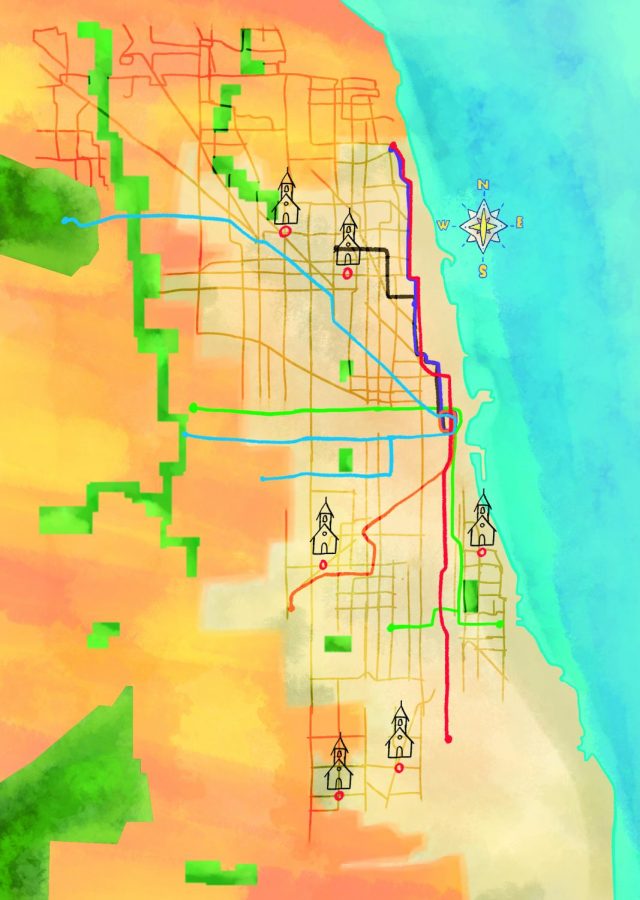Initiative closes gap in CPS college courses
Initiative closes gap in CPS college courses
November 6, 2017
Annually, about 650,000 high school students nationwide fail to receive the education they deserve when others their age are doing college-level work, said Sasha Rabkin, chief programs officer at Equal Opportunity Schools.
Chicago Public Schools announced it will be joining the Lead Higher Initiative, a partnership with Equal Opportunity Schools—a nonprofit that helps give high school students of all backgrounds access to accelerated courses—according to an Oct. 26 CPS press release.
CPS became involved with the initiative after noticing a lower level of minority representation in college-level classes in district schools, the press release stated.
“In general, white and Asian non-low income students tend to overpopulate Advanced Placement courses across the country,” Rabkin said. “While students of color and low-income students under-populate classes.”
Six CPS high schools have been accepted into the program: Morgan Park High School, King College Prep and Chicago Agricultural High School on the South Side; Curie High School on the West Side; and Lakeview High School and Mather High School on the North Side.
The selected schools are a mix of selective-enrollment and neighborhood schools. Principal Peter Auffant at Mather High School in West Ridge said he was pleased that Mather—a neighborhood school with almost 1,500 students—was chosen.
“Mather is the most diverse high school in all of Chicago—with [more than] 60 languages spoken and 140 nations represented,” Auffant said. “The diversity of the students is what makes the school strong. I believe we were chosen because we have a lot of characteristics that make for a positive implementation of any new program.”
Mather offers 17 AP courses and two dual-credit courses. In the 2016–2017 school year, 279 11th and 12th grade students were enrolled in an AP course at Mather, he noted.
Auffant said he is interested to see how the initiative addresses income disparities among students, which are not as physically evident as race.
King College Prep, which currently offers 15 college credit courses, is one of the selective -enrollment schools chosen for the program, Principal David Narain said. King’s student body is almost 100 percent African-American, so racial disparities in access to college level courses is not an issue, he added.
Narain said that while 100 percent of King students are accepted into a four-year college or university, only about 20 percent of the 80 percent of students taking AP exams earn a high enough score to receive college credit.
“My conversation with [Equal Opportunity Schools] was more about avenues to improve our student success rates on those [AP] exams,” Narain said.
Each school will work with the initiative to analyze its equality landscape and define the causes of participation gaps. Then, schools will develop a strategy to address barriers to participation, set enrollment goals and recruit students who could benefit from AP or International Baccalaureate.
In 2017, more than 43 percent of CPS graduates earned one or more college or career credentials through IB, AP or other programs, according to the CPS press release.
“Opportunity precedes achievement, so our goal is to close the opportunity gap with the fundamental belief that students, when given the opportunity, will achieve and succeed,” Rabkin said.








